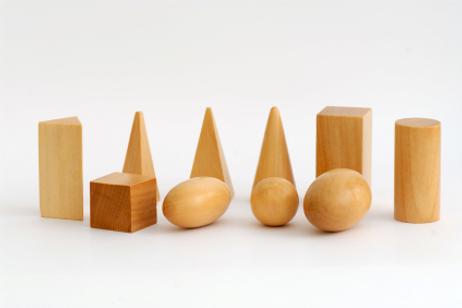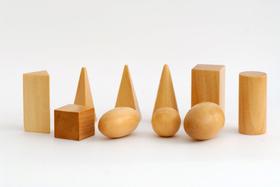Dr. Maria Montessori founded Casa de Bambini in a poor neighborhood of Rome, Italy, in 1906. She blazed new trails in early education by believing in the innate goodness of children, encouraging them to be curious and explore, and creating a teaching environment that followed the child.
Dr. Montessori's experiments and research ultimately produced a worldwide movement. Over 100 years later, her findings and research have stood the test of time and have been validated by modern analysis and investigation. Montessori schools have multiplied like rabbits in the United States from the 1960s onwards. Unlike Dr. Montessori's schools, which served poor children, most Montessori schools in North America educate children from the middle classes. Indeed, the Montessori approach has been used with children in all kinds of situations. It is very adaptable to the needs of a wide range of children.
Dr. Montessori never trademarked the name Montessori, nor did she claim any patents on her methodology. The result is that many Montessori schools out there claim to be the real thing. Some schools may include elements of Dr. Montessori's methods and philosophy in their teaching. Other schools quietly sublimate the parts of Dr. Montessori's thinking that may be inappropriate in their setting. In short, there are almost as many flavors of Montessori as there are schools. Not a bad thing in itself, but as always, do your due diligence. Caveat emptor!
Here are five things you should look for when vetting a school that purports to be a Montessori school.
1. Is the learning self-directed?
Montessori teachers do not teach. They guide their students, help them, and prepare a learning environment for them. They are facilitators in the classic sense of that word. Dr. Montessori believed that children are capable of discovery. It is precisely that thrill of discovery that leads to all sorts of creative enterprise and satisfaction.
A Montessori classroom scales furniture and fixtures to the child. The Montessori classroom becomes your child's world, an entire of exciting things to explore. All the essential learning concepts, such as math and reading, are included in Montessori. The secret to the Montessori approach is that the child explores each concept at her own pace. Because classes include children from several age groups, you will find the older children helping the younger children.
Observe a class. Look for children working on their own and in groups. If you see children sitting at desks while a teacher pours information into their heads, it probably isn't an authentic Montessori school.
2. Are the children passive or active in their learning?
Montessori children don't watch videos about math. They touch, hold, and feel the numbers. They play with them. The numbers take on life and meaning in the child's mind. Maria Montessori applied the same approach to all parts of the curriculum. Language, science, math, culture, and many subsets within these disciplines have unique Montessori multi-sensorial materials. For example, math is taught by handling, exploring, and counting beads, rods, and other things. The teacher in a Montessori classroom guides, assists, and helps each child individually. The learning is personalized to each child's particular needs and ability level.
Learning in the Montessori way develops self-confidence, affirms the child's sense of self-worth, and shows her that she CAN do it. Laying these foundations of self-confidence and affirming a child's innate goodness sets her on the right path to adulthood.
If you see an authoritative teacher teaching and children merely watching, it probably isn't an authentic Montessori school.
3. Are there several age groups in the classroom?
One of Dr. Montessori's tenets was that younger children learn by following the example of older ones. Consequently, you will not find the traditional grade classifications in a Montessori school. Children work at their own pace. They can do so if they need to spend more time on a project. They do not have to move at a set pace. Montessori encourages each child to learn at their own speed. Multiage classes promote respect for others. Multiage classes encourage older children to help younger ones. Learning in a Montessori classroom occurs against a backdrop of community, sharing, and respect for others.
Shouting, bullying, and disrespect for others are nowhere in a Montessori school. Children are taught by example. Montessori teachers are paragons of gentleness, patience, and kindness. The multiage classroom fosters respect and positive behavior. It encourages mentoring and leadership.
If you are shown a first-grade class, it probably isn't an authentic Montessori school.
4. Is there a strong cultural emphasis?
The cement that binds all of Dr. Montessori's work is that children must make the world better when they become adults. World peace was her cherished goal. Montessori maps should be in evidence as children learn from the earliest age that there is a world outside their school walls.
The cultural component in the Montessori curriculum is not taught in isolation. It is interwoven with math, science, languages, art, and music. Your child learns to respect and admire how other cultures and peoples see things. There is no suggestion that 'our way' is the only way or the best way. Teaching a child to respect every culture equips her to be a caring, concerned global citizen.
If you don't see a strong cultural emphasis, it probably isn't an authentic Montessori school.
5. Is the school a member of the American Montessori Society?
Of the approximately 4,000 Montessori schools in the U.S., only 1,100 are members of the AMS. While membership in AMS is no guarantee as to the quality of the education a particular member school offers, it does hold the school accountable to the Society's Code of Ethics and principles of membership, which the AMS stands for. Finally, ask if the American Montessori Society credentials the teachers.
Once again, it is essential to note that Dr. Montessori did not trademark her educational methods, approach, or philosophy. As a result, you will encounter many schools that claim to be Montessori schools. To me, the physical attributes of a Montessori school are essential. The beautiful, clean classroom, the child-sized tables and chairs, and the lack of a teacher's desk and chalkboards are all physical things that matter, and they should follow Montessori guidelines.
For me, the most important thing to you and me as parents is the teacher and how she teaches. It takes a very special kind of teacher to manage a multiage class. It takes a very special kind of teacher to gently move from one child to another to guide and facilitate the learning that is taking place all the time. The best Montessori teachers are exemplars of intelligence, patience, gentleness, and kindness.
If you suspect the teacher doesn't live up to the standards I have laid out in the previous paragraph, it is probably not an authentic Montessori school.
Questions? You can contact me on Facebook and Instagram. @privateschoolreview
#MontessoriEducation #AuthenticMontessori #SchoolEvaluation #ChildCenteredLearning #EducationalChoice #privateschools






















